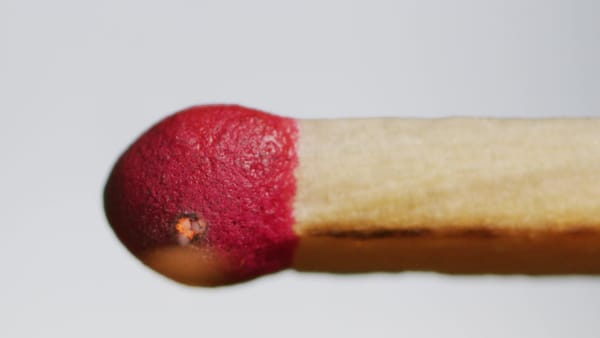Natural Alternatives to Adderall: Exploring Nature's Boost for Focus and Energy
ADHD impacts about 4-5% of adults and up to 10% of kids worldwide, leading to challenges with attention, hyperactivity, and impulsivity. Traditional stimulants like Adderall help by flooding the brain with neurotransmitters, but they can disrupt natural rhythms over time.

In a world that's always demanding more from our minds—whether it's juggling work deadlines, family life, or just keeping up with the daily grind—it's no wonder so many people turn to prescriptions like Adderall for that extra edge. Adderall, a mix of amphetamine salts, works by cranking up dopamine and norepinephrine levels in the brain, sharpening focus and curbing impulsivity. But here's the thing: while it's effective for many with ADHD, it comes with baggage. Insomnia, anxiety, appetite suppression, and the potential for dependency aren't small prices to pay. What if we looked to what nature provides instead? God placed an abundance of plants, herbs, and nutrients on this earth, many of which have been used for centuries to support brain health and vitality. These natural alternatives aren't about replacing medical treatment but exploring gentler ways to nourish the mind and body.
I've dug deep into the latest research from sources like PubMed, Nature, and other peer-reviewed journals to bring you a thorough rundown. We're talking meta-analyses, randomized trials, and systematic reviews that highlight how these options might mimic some of Adderall's benefits without the harsh side effects. Of course, science isn't one-size-fits-all—individual responses vary based on genetics, diet, and lifestyle. The key is approaching this holistically: pair supplements with good sleep, exercise, and a nutrient-dense diet. Let's break it down, substance by substance, with the evidence, mechanisms, dosages, and precautions. We'll go into the weeds because understanding the "why" empowers you to make smarter choices for your wellness.
Why Turn to Nature for Focus and Energy?
ADHD impacts about 4-5% of adults and up to 10% of kids worldwide, leading to challenges with attention, hyperactivity, and impulsivity. Traditional stimulants like Adderall help by flooding the brain with neurotransmitters, but they can disrupt natural rhythms over time. Natural alternatives, on the other hand, often work by addressing root causes like nutrient deficiencies or oxidative stress. For example, low levels of essential fatty acids or minerals have been linked to ADHD symptoms in multiple studies. These options might not be as potent as pharmaceuticals, but they could offer sustained support with broader health benefits, like reducing inflammation or improving heart function.
Think of it this way: our bodies are designed to thrive on what the earth provides. Fresh air, whole foods, and herbal remedies have sustained humanity for millennia. Modern research is catching up, showing how these can modulate brain chemistry gently. But a word of caution—natural doesn't equal harmless. Interactions with medications (like blood thinners or antidepressants) are possible, and quality matters. Look for third-party tested products to avoid contaminants. Start slow, monitor effects, and involve your doctor. Now, onto the stars of the show.
Omega-3 Fatty Acids: Essential Fats for Brain Power
Omega-3s, those powerhouse polyunsaturated fats found in fish like salmon, walnuts, and flaxseeds, are crucial for brain structure and function. They make up a big chunk of cell membranes in the brain and help reduce inflammation, which can fog up mental clarity. By boosting dopamine availability—much like Adderall does, but more subtly—omega-3s may ease ADHD symptoms without the stimulant buzz.
The evidence stacks up favorably. A meta-analysis on PubMed of randomized trials found that omega-3 supplementation, particularly with higher doses of EPA, had a small but significant effect on improving ADHD symptoms in children, including inattention and hyperactivity. Another comprehensive meta-analysis from 2023 echoed this, noting benefits for core symptoms like impulsivity, though longer-term use (beyond 12 weeks) showed even better results. In youths and adults, research in Nature indicates omega-3s could address fatty acid deficiencies common in ADHD, leading to better cognitive performance and mood stability. While not as strong as stimulants (about 30-40% effectiveness in some comparisons), they're a solid add-on.
Dosage-wise, aim for 1,000-2,000 mg of combined EPA/DHA daily for kids and up to 3,000 mg for adults, split into doses with meals to aid absorption. Plant-based sources like algae oil work for vegans. Side effects are minimal—maybe some digestive upset or a fishy aftertaste, which enteric-coated capsules can fix. If you're deficient (get a blood test), benefits might show in 4-8 weeks.
For a reliable option, try Nordic Naturals Ultimate Omega, packed with high EPA/DHA and rigorously tested. You can find it here on Amazon.
Ginkgo Biloba: Ancient Herb for Modern Minds
Ginkgo biloba, extracted from the leaves of a tree that's outlived dinosaurs, has been a staple in traditional Chinese medicine for enhancing circulation and memory. It boosts blood flow to the brain, acts as an antioxidant to fight free radicals, and may tweak neurotransmitter levels, potentially improving focus and reducing ADHD fog.
Studies support its use, especially in kids. A 2015 trial on PubMed concluded that ginkgo is an effective complementary treatment for ADHD, improving symptoms like inattention. Though less potent than methylphenidate (Ritalin), a 2009 study found it helpful, and a 2014 pilot suggested up to 240 mg daily could be a useful alternative. When combined with ginseng, a pilot study from 2001 showed improvements in hyperactivity and impulsivity, hinting at synergistic effects.
Standard dosage: 120-240 mg per day of extract standardized to 24% flavone glycosides and 6% terpene lactones, divided into 2-3 doses. It might take 4-6 weeks to notice changes. Watch for side effects like headaches or mild stomach issues; avoid if on blood thinners due to bleeding risks.
Nature's Bounty Ginkgo Biloba is a budget-friendly, potent choice. Grab it on Amazon.
Rhodiola Rosea: Adaptogen for Stress-Resistant Focus
Growing in harsh, cold climates, rhodiola rosea is an adaptogen that helps the body adapt to stress, potentially elevating mood-boosting chemicals like serotonin and dopamine. This could translate to better mental stamina and concentration, especially under pressure.
Research highlights its anti-fatigue properties. A 2022 systematic review found rhodiola alleviates various fatigue types, enhancing mental performance and concentration. Another 2012 review on PubMed noted benefits for physical and mental fatigue, while a 2018 analysis showed improvements in chronic fatigue symptoms, including focus. Though direct ADHD studies are limited, its neurotransmitter effects make it promising.
Dosage: 200-600 mg daily, standardized to 3% rosavins and 1% salidrosides, taken early in the day. Side effects? Rare, but high doses might cause dizziness.
Nutricost Rhodiola Rosea offers pure potency. Available on Amazon.
Bacopa Monnieri: Ayurvedic Ally for Clarity
Bacopa monnieri, or Brahmi, thrives in wet environments and has been revered in Ayurveda for sharpening intellect. It protects neurons, boosts antioxidant enzymes, and modulates brain chemicals for better memory and processing speed.
An open-label study on PubMed showed it alleviated ADHD symptoms in children, improving restlessness and self-control. A 2013 trial linked it to enhanced attention, cognitive processing, and working memory via acetylcholine modulation. A systematic review confirmed benefits for hyperactivity and attention.
Dosage: 300-450 mg daily, standardized to 55% bacosides, with food. Effects build over 4-12 weeks. Mild GI upset possible.
Himalaya Organic Bacopa is clean and effective. Find it on Amazon.
L-Tyrosine: Amino Acid Precursor to Focus Fuels
L-tyrosine, found in cheese and soy, is a building block for dopamine and norepinephrine. Under stress, supplementing it might replenish these for sustained alertness.
A 2015 review found tyrosine counters cognitive decline during demands, boosting dopamine. Another study explored its effects on inhibition and focus.
Dosage: 500-2,000 mg on an empty stomach. Rare nausea at high doses.
Double Wood L-Tyrosine is straightforward. Check it on Amazon.
L-Theanine: Tea's Tranquil Booster
From green tea, L-theanine promotes calm focus, often synergizing with caffeine for jitter-free energy.
A 2019 study showed L-theanine plus caffeine improved attention and impulsivity in ADHD kids. Reviews suggest stress reduction and better focus.
Dosage: 200-400 mg, with caffeine if desired. Minimal side effects.
Sports Research L-Theanine is top-notch. Available on Amazon.
Ginseng: Root of Vitality
Panax ginseng energizes and balances, influencing brain chemicals for better control.
A 2024 review indicated benefits for inattention. Trials showed red ginseng reduced ADHD symptoms.
Dosage: 200-1,000 mg standardized. Monitor for insomnia.
NooMost Korean Red Ginseng is strong. Get it on Amazon.
Magnesium: Calming Mineral Essential
Magnesium regulates nerves; deficiencies link to ADHD.
A 2006 study with B6 showed symptom reduction. Research confirms benefits.
Dosage: 200-400 mg glycinate. Diarrhea possible.
Natural Rhythm Triple Calm Magnesium blends well. Find it on Amazon.
Zinc: Trace Mineral for Balance
Zinc aids dopamine; low levels worsen impulsivity.
A placebo-controlled study noted reductions. 2021 research linked supplementation to improvements.
Dosage: 15-30 mg. Nausea rare.
Thorne Zinc Picolinate absorbs best. Available on Amazon.
Iron: Oxygen Carrier for the Brain
Iron deficiency mimics ADHD; supplementation helps if low.
A 2021 review showed improvements. Studies confirm symptom relief.
Dosage: 18-65 mg with C. Constipation possible; test levels.
MegaFood Blood Builder is gentle. Check on Amazon.
Pycnogenol: Pine Bark's Antioxidant Punch
From French maritime pine, pycnogenol fights oxidative stress.
A 2017 trial protocol and review suggest benefits for hyperactivity.
Dosage: 1 mg/kg. Mild discomfort.
Healthy Origins Pycnogenol is pure. Find it on Amazon.
Citicoline: Neuron Nourisher
Citicoline builds brain compounds for memory and attention.
A 2024 PubMed article highlights potential for ADHD. Studies show cognitive gains.
Dosage: 250-500 mg. Rare insomnia.
Jarrow Formulas Citicoline is reliable. Available on Amazon.
Combining Nature's Gifts: A Holistic Strategy
Don't stop at one—many work better together, like omega-3s with zinc or L-theanine with caffeine. Diet matters: incorporate fatty fish, nuts, and greens. Exercise releases endorphins, mimicking dopamine boosts. Sleep regulates everything. Research shows lifestyle tweaks amplify supplements.
In closing, these natural paths remind us that healing often lies in simplicity. With evidence backing them, they're worth exploring under guidance. Stay consistent, listen to your body, and embrace the wellness God intended.
As an Amazon Associate, I earn from qualifying purchases.




